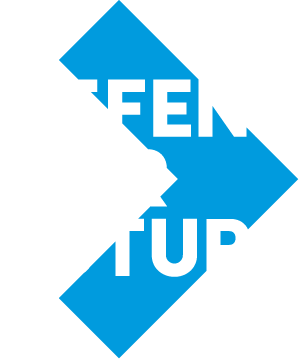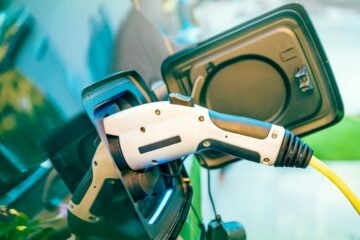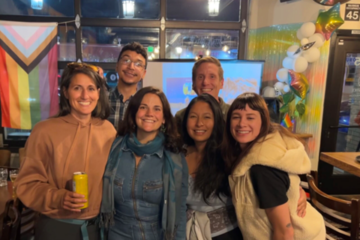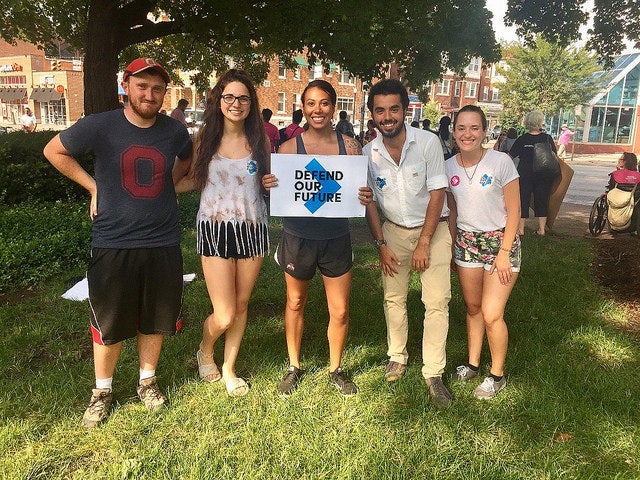Earlier this month, Defend Our Future and the National Campus Leadership Council hosted the third annual National Climate Leadership Summit in Washington D.C. For three days, more than 120 students and young professionals from around the country convened to listen and learn at workshops, speeches and panels. Here’s my inside perspective.
The summit kicked off with a rooftop social event at U.S. Green Building Council. Not deterred by a light rain, I chatted with fellow students and university professionals who, like me, are committed to finding solutions. Everyone was eager to network and expressed excitement for the next couple days.
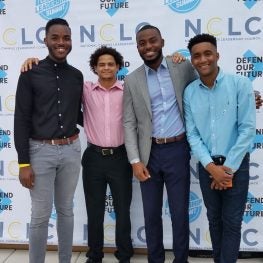 The next morning brought an action-packed day of workshops and high-profile speakers. We dispersed into small-group sessions, and I joined 20 other attendees for a “Championing Conservation” talk with Cameron Witten of The Wilderness Society. We broke down the budgetary and population growth-induced threats to America’s public lands, and discussed strategies to increase engagement in conservation efforts. Ending with a catchy call-to-action – “Educate, Advocate, Organize” – I left the session ready to continue learning how to tackle the biggest environmental challenges.
The next morning brought an action-packed day of workshops and high-profile speakers. We dispersed into small-group sessions, and I joined 20 other attendees for a “Championing Conservation” talk with Cameron Witten of The Wilderness Society. We broke down the budgetary and population growth-induced threats to America’s public lands, and discussed strategies to increase engagement in conservation efforts. Ending with a catchy call-to-action – “Educate, Advocate, Organize” – I left the session ready to continue learning how to tackle the biggest environmental challenges.
Over lunch, attendees had the honor of listening to Mustafa Ali of the Hip Hop Caucus. A pioneer in environmental justice and a 24-year veteran of EPA, Mustafa touched on the complex political and economic elements that make environmental equity and racism so difficult to resolve. He stressed the importance of grassroots movements and the power of the people, and designated authenticity and respect as key for successful community engagement. In true millennial fashion, he ended his talk with a picture of all attendees holding their hands up for power.
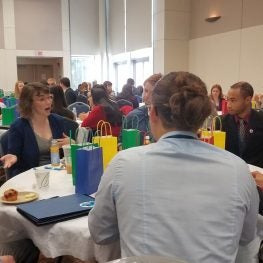 Fired up from Mustafa’s charisma, we delved into communicating climate science with Dr. John Cook and Dr. Connie Roser-Renouf from George Mason University. They pointed out tell-tale signs of science denial. We learned that because people are most likely to expose themselves to information that confirms their beliefs, the responsibility is on us as climate advocates to engage skeptics and frame climate change as an issue that impacts us all.
Fired up from Mustafa’s charisma, we delved into communicating climate science with Dr. John Cook and Dr. Connie Roser-Renouf from George Mason University. They pointed out tell-tale signs of science denial. We learned that because people are most likely to expose themselves to information that confirms their beliefs, the responsibility is on us as climate advocates to engage skeptics and frame climate change as an issue that impacts us all.
Next up were breakout sessions focused on communication and engagement. “Campus Organizing”, presented by Maggie Thompson of Generation Progress, made things interactive by having us work on a sample campus organizing guide in small groups. We left the session having planned organizing strategies, timelines, and power maps for real campaigns on our campuses.
The next session I attended was “Digital Engagement” with powerhouse personality Michael Skolnik of The Soze Agency. Michael walked us through the evolution of digital media, from FDR’s “Fireside Chats,” to social media-fueled movements like Black Lives Matter. He stressed the importance of storytelling – the result of authenticity and compassion, according to his tried-and-true formula – when engaging people on an issue like climate change.
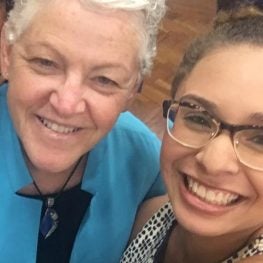 The group reconvened for the plenary, headlined by former EPA Administrator Gina McCarthy. Her powerful speech stressed grassroots action and local-level organizing to combat a hostile political climate for environmental activism. Finally, she emphasized that climate issues are social justice issues, and that we as advocates must work harder than ever to educate, organize and speak out. Of course, I had to get a selfie with Gina McCarthy.
The group reconvened for the plenary, headlined by former EPA Administrator Gina McCarthy. Her powerful speech stressed grassroots action and local-level organizing to combat a hostile political climate for environmental activism. Finally, she emphasized that climate issues are social justice issues, and that we as advocates must work harder than ever to educate, organize and speak out. Of course, I had to get a selfie with Gina McCarthy.
We met the next morning at the Library of Congress for some motivational remarks from Florida Representative and environmental champion Charlie Crist, followed by a policy panel with professionals in the green building and energy sectors. The most important information I took away from the panel: renewables will continue to grow at a state level; corporate sustainability initiatives are on the rise; and America’s exit from the Paris climate agreement may spur power market reform.
Overall, the 2017 National Climate Leadership Summit was a remarkable learning experience. I was inspired by student and professional leaders alike, and I know that the future of climate action is in good hands.
